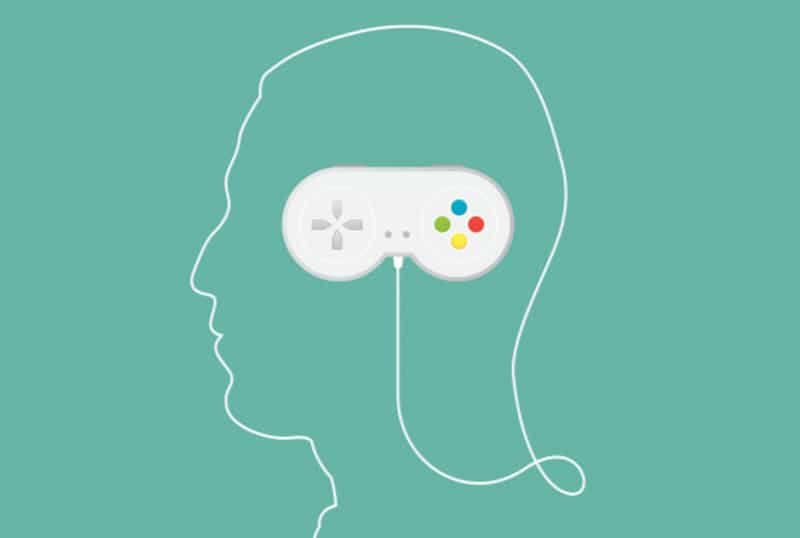Story-telling has been a part of our societal zeitgeist since our early nomadic days. It was the primary method of conceptualizing ideologies, fears, and taboos. As our mediums advance, thanks to technology, our love of storytelling continues to fuel how we explore our inner world.
One of these ways is video games. Video games provide an unforgettable experience to players with story-telling and character development. Story-telling has created a renaissance of spectacular games that explore identity, community, free will, morality, and mental health.
Mental health has been a growing concern in the U.S. and around the world. Fortunately, there are many available resources for people experiencing symptoms. Many sites can help you self-assess and discover whether your symptoms could be a sign of mental illness. If you’re experiencing mental health issues and want to learn more, check out this site.
Here are 5 games that address mental health topics and help demystify mental illness with relatable characters and engaging stories.
1. Hellblade: Senua’s Sacrifice – Paranoid schizophrenia
Hellblade: Senua’s Sacrifice follows Senua, a warrior from a Celtic tribe, as she attempts to save her partner’s soul after being slaughtered during a Viking raid.
From the first scene, players witness the many symptoms of psychosis Senua faces, from whispering voices to fighting literal monsters and seeing patterns in the air. Throughout the game, Senua’s sense of reality is brought into question to the point where she doesn’t know whether the monsters she fights are real or imagined. Nor can she discern whether her journey is real, which is left unanswered until the finale.
Hellblade: Senua’s Sacrifice shows players a respectful and accurate portrayal of a person living with schizophrenia and PTSD.
2. Spec Ops: The Line – Dissociative Disorder, PTSD
Players can be forgiven for assuming Spec Ops: The Line is a first-person shooter with fierce shoot-outs and little depth. Spec Ops: The Line goes much deeper than traditional shooting games and explores the invisible damage to soldiers living through the atrocities of war.
The story centers around Captain Martin Walker, a soldier sent to apprehend ex-soldier John Konrad, who declares martial law and commits atrocities to its citizens. As you progress through the game, players witness Captain Walker’s psychological decline as he begins to experience auditory and visual hallucinations.
Spec Ops: The Line dares to shine a light on the psyche after traumatic events and also subtly takes a jab at our desensitization of violence and treatment of soldiers returning from war. Spec Ops: The Line explores what living with PTSD and Dissociative Disorder may feel like and how these symptoms affect their fragmented view of reality.
3. Celeste – Anxiety
Celeste is a 2D platformer game about Madeline, a girl determined to climb Celeste Mountain. At first upbeat and hopeful, Madeline begins to doubt herself and face bouts of anxiety and depression. Her anxiety manifests as a shadow clone of herself, representing Madeline’s anxiety, self-doubt, and self-destructive behaviors.
The game compares living with anxiety and depression to climbing a mountain to represent the uphill battle people with anxiety have to climb.
Celeste provides a sobering but ultimately hopeful look at the challenges of how hard it is to live with anxiety and the importance of resilience and facing one’s problems head-on.
4. That Dragon, Cancer – Grief
That Dragon, Cancer is a game about grief and loss. Ryan and Amy Green created the game to process the death of their 5-year old son Joel’s struggle through cancer treatment. The game explores Joel’s life, providing whimsical levels at first and turning bleaker as his cancer progresses.
At the same time, the story gives the parents screen time to highlight how they process loss. While Amy turns to religion, Ryan questions his faith. Their conflicting views of grief are a poignant testament to differences in which we acknowledge death and loss.
The game depicts a brutally honest experience of facing an enormous tragedy together and all of the feelings that come with it, asking many questions but providing few answers.
That Dragon, Cancer is less of a game and more of a confessional video of grief and coping with loss that will disarm you with its honesty and give you tools to live with grief and depression.
5. Night In The Woods – Depression, Bipolar Disorder
Night In The Woods is a game about Mae, a 20-something-year-old cat that drops out of college and goes back to her hometown of Possum Springs. Players get to experience daily interactions with Mae’s anthropomorphic friends as they struggle with their own existential crises.
As the game advances, you learn that Mae has a series of mental illnesses possibly passed down from her family. She expresses negative self-talk when she’s in front of the mirror and finds herself getting into acts of delinquency and refusing to grow up.
Night In The Woods is a simple game that depicts the concerns of young adults in a Midwest-inspired town facing joblessness and turmoil. The game doesn’t villainize mental disorders nor make them central themes. Instead, the game treats mental health as a motif to further humanize each character. Night In The Woods treats mental illness as a daily part of life that many players may find relatable.
Final Thoughts
Video games can create stories that teach about mental illness, represent mental health respectfully, and give hope to people living with mental disorders. If you’re experiencing symptoms of mental illness, reach out to a licensed professional today.


